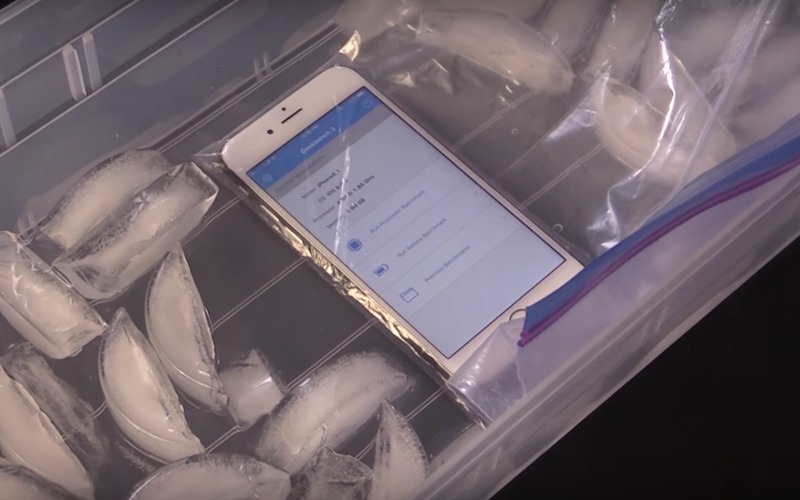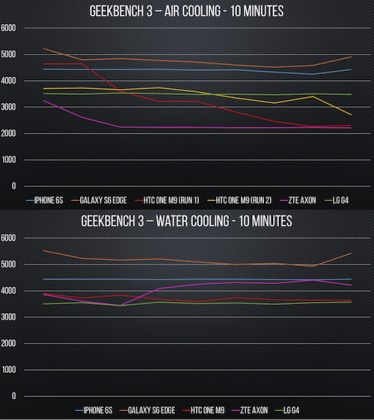
Aside from stress tests and benchmark tests, there’s another way to test the performance of one mobile device before comparing it to other units available. Water cooling is a technique that long-time geeks and gamers use to test if a gadget, most commonly a PC, can stand the test of extreme temperatures.
This is something you can do on your own but probably won’t because why bother when you can leave such kind of tests to the experts like Youtuber Linus Tech Tips. He tried the new iPhone 6S and a number of premium Android devices and put them to a water cooling test to see if a “cool” phone will perform better than a normal, air cooled one.
Linus Tech Tips did the water cooling by filling a small tub with ice water, put each mobile device inside its own ziploc, and then submerge the plastic bags in the water. After a few minutes, he ran the standard benchmark tests on each unit. The first tests where for the iPhone 6S and as expected, the latest iPhone version was discovered to perform really well. Others are even saying better than a MacBook Pro.
They may just be numbers but benchmarks tell us if the heat management solution of a device is effective or not. A water cooled iPhone 6S has excelled in performance. For comparison, five more mobile devices were water cooled for 10 minutes: the Galaxy S6 Edge, HTC One M9, ZTE Axon, and the LG G4. These are just some of the latest Android flagship premium smartphones in the market today and probably the more popular models too.
“Air cooled” devices were tested and then scores were recorded several times within ten minutes. After some time, the phones were “water cooled” and then tested a few times again within ten minutes.
Watching the Water Cooling below, we noted some interesting observations and results:
We all know that the iPhone 6S performed well. How about the latest Android phones? Let’s see:

The Galaxy S6 edge’s performance is still impressive compared to others even when water cooled, thanks to the Exynos chip. Snapdragon-powered units like HTC One M9 and ZTE Axon showed significant changes especially on the HTC One M9. Two tests were actually run to check the HTC phone. We’re guessing the Snapdragon 810 chip is the culprit that’s why scores are going everywhere. It’s not as bad though on the ZTE Axon.
These numbers are obtained using Geekbench 3 so the results should be legit and reliable. The clear winner here is the Samsung Galaxy S6 Edge. We’re not surprised but we’re interested to how the Sony Xperia Z5 will score against the other Android phones since it’s one of the “hottest” phones these days getting high scores in other benchmark tests.
SOURCE: LinusTech Tips










Gotta love that 7420 processor. I’m happy I chose the note 5 even more now